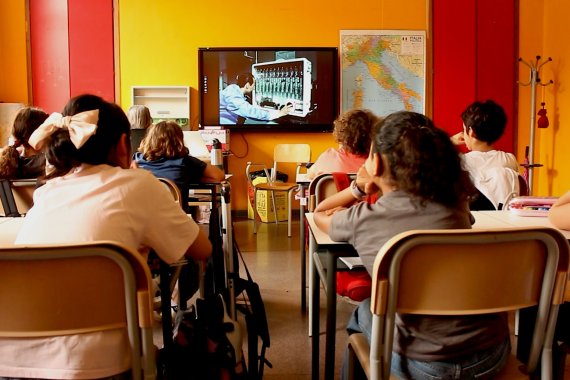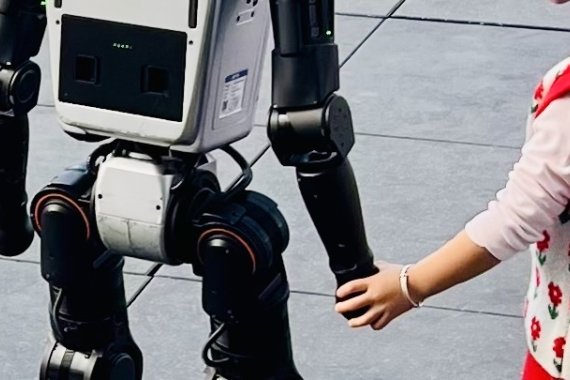From Nairobi to Turin: Africa and Europe Reimagine the Digital Future
From Nairobi to Turin: Africa and Europe Reimagine the Digital Future
A global partnership unites Africa and Europe to advance decent work, digital inclusion, and human-centred innovation.
24 October 2025
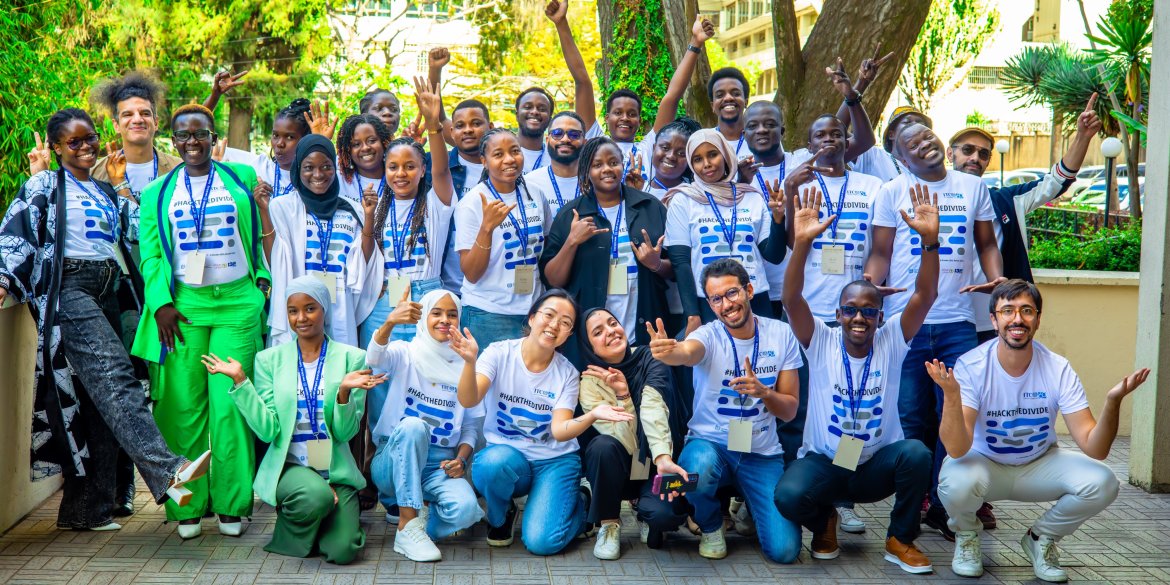
A one-of-a-kind flagship event. Convenings on two continents. Research meets tech, tech meets policy. Private sector actors dialogue with civil society. Cross-cultural networking and the promise of collaboration. The Skills for Fair Digital Transitions in Africa event is underway. What brings everyone together? A commitment to an African digital revolution that is fair, inclusive and people-centric.
The Genesis
Africa stands at the crossroads of a demographic boom and an accelerating digital revolution. By 2050, the continent will be home to the world’s youngest workforce, yet nearly 100 million young people are not in education, employment, or training. Challenges such as informality and underemployment continue to hamper inclusive growth. Adding to these structural constraints is the persistent digital divide that limits equitable access to the digital skills and infrastructure increasingly essential in today’s labour markets.
There is an urgent need to equip Africa’s workforce and institutions with the skills, tools, and policies required to navigate a fair and sustainable digital transition. In this context, the Skills for Fair Digital Transitions in Africa initiative was co-organized by the International Training Centre of the ILO (ITCILO), International Labour Organization (ILO), Italian Ministry of Foreign Affairs and International Cooperation (MAECI), in partnership with the African Union Commission - Department of Education, Science, Technology, and Innovation.
Aligned with the ILO Decent Work Agenda and Italy’s Mattei Plan for Africa, the event supports continental frameworks like the African Union’s Agenda 2063 and the Continental Education Strategy for Africa (CESA) 2025. It places digital skills at the heart of inclusive, human-centred transitions, inclusive digital growth and youth empowerment.
Charting the Fair Transition Path
From 7–8 October 2025, the event took place simultaneously in Turin, Italy, and Nairobi, Kenya, with a global livestream connecting both. Uniting over 200 participants from across countries and sectors, it aimed to boost youth participation in the digital economy and strengthen dialogue around Africa’s priorities in skills development, employment, and human capital investment.
With a particular focus on the acquisition of skills through education and training, discussions focused on six thematic areas:
- TVET and youth employment
- Labour mobility and migration
- Entrepreneurship and business development
- AI for the public good
- Gender equality, inclusion and the transition to formal work
- Local innovation and governance
The event brought together ministers and high-level government representatives from Africa and Europe, as well as employers’ and workers' organisations, members of civil society, public institutions, TVET providers, development partners, and international organisations. It also convened African youth-led startups, digital solution providers, and tech incubators from both Europe and Africa, alongside academia, subject matter experts, and researchers.
Turin Speaks Digital
Digital transformation must be fair. Excluding any population group or region risks deepening inequalities, which is unacceptable. Inclusion and equal access to opportunities are essential.
Mr Stefano Gatti
Director General for Development Cooperation, Italian Ministry of Foreign Affairs and International Cooperation
The event opened with remarks by Mr Christophe Perrin (Director, ITCILO) and Mr Stefano Gatti (Director General for Development Cooperation, Italian Ministry of Foreign Affairs). Prof. Saidou Madougou (Director of Education, Science, and Technology, African Union Commission) and Ms Fanfan Rwanyindo Kayirangwa (Assistant Director-General and Regional Director for Africa, ILO) also made opening statements that set the tone for the event, emphasising the strong partnership between Africa and Europe to ensure a fair digital transition that leaves no one behind.
Technology must serve people, not the other way around. Skills rights and social dialogue are essential if digitalization is to deliver decent work and social justice. It underscores that social dialogue should shape how technology is integrated into the workplace. Without social dialogue, the digital future will not deliver on its promise. That is why this event is so important, the session topics and panels reflect the current realities of the world of work.
Ms Fanfan Rwanyindo Kaira-Nangwa
Assistant Director-General and Regional Director for Africa at the International Labour Organisation
The Turin segment featured high-level plenaries with ministers, employers’ and workers’ representatives, and international leaders. Discussions ranged from what a truly fair digital transition means for Africa, interoperability, challenges faced by skills systems across the continent, artificial intelligence and the digital divide, overcoming barriers to digital inclusion, formalisation of informal work, and the need for responsive skills policies, investments in TVET, and digital inclusion across formal and informal economies.
When we speak of digital transition, the term evokes images of efficiency, speed and innovation which we really support, but for a worker, particularly in Africa, it can also bring feelings of uncertainty, precarity and fear of being left behind. And so, our vision for digital transition in Africa must be one where progress is measured not just in economic growth terms but also in the quality and fairness of the jobs created. We must challenge the notion that digital jobs inherently mean economic precarity.
Ms Rose Omamo
Deputy President, ITUC Africa
Day 2 of the Turin event opened with a welcome by Ms Michela Favaro, Vice Mayor of Turin, followed by a fireside chat with leaders from Mauritania and Mozambique. The conversation explored how political leadership can champion fair digital transitions and ensure gender-responsive approaches to future skills.
What we have seen in all the experiments we have done with technology is that it is really not about how we adapt or embrace these technologies. It is not about technological headsets; it is about changing mindsets. It is not just about adapting infrastructure technologies and tools; it is about creating an enabling environment infused with different change management elements. There is a big human adoption element in the overall technology story.
Tom Wambeke
Chief of Learning Innovation, ITCILO
Afterwards, 22 exhibition booths showcased innovations from Italy, USA, Bulgaria, Portugal, France, Spain, The Netherlands, Belgium, UK, Kenya, Côte d’Ivoire, and Germany. From AI-powered learning tools to low-tech mobile training platforms, technology providers, TVET institutions, and startups demonstrated how their solutions are helping bridge digital divides. The fair, organized in partnership with EdTech Italia, created an ecosystem of dialogue and collaboration around inclusive skilling technologies.
In the afternoon, attention shifted to networking and partnerships. 13 partnership booths hosted institutions from Africa and Europe, connecting participants with employers, training networks, and social partners. Thematic tables explored AI for learning, empowering marginalized groups, and building inclusive tech workforces.
#HackTheDivide: Youth at the Heart of the Digital Transition
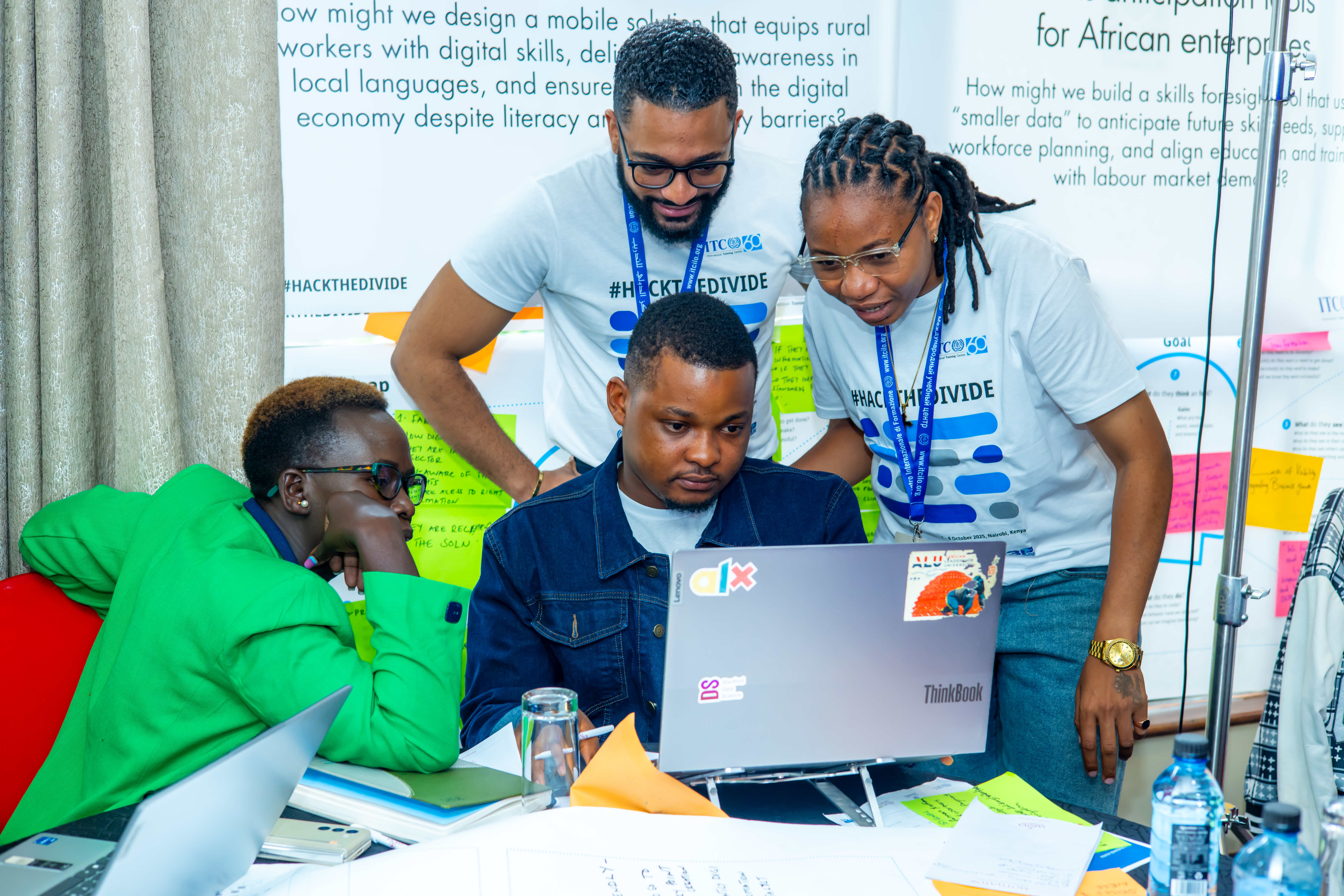
Meanwhile, in Nairobi, a fully-funded two-day hackathon to co-create solutions for fair digital transitions in Africa had already begun. Working in partnership with Italy’s leading business incubator I3P, 24 young digital innovators from 15 African countries were led to work in teams of 4 on six challenges provided by ILO’s tripartite constituents (governments, workers and employers):
- Digital skills passport for migrants. Refugees and displaced persons
- AI-powered skills matching for informal and rural workers
- Skills anticipation tools for African enterprises
- Equipping VET educators for the future
- Digital skills for rural workers
- Women’s transition to formality
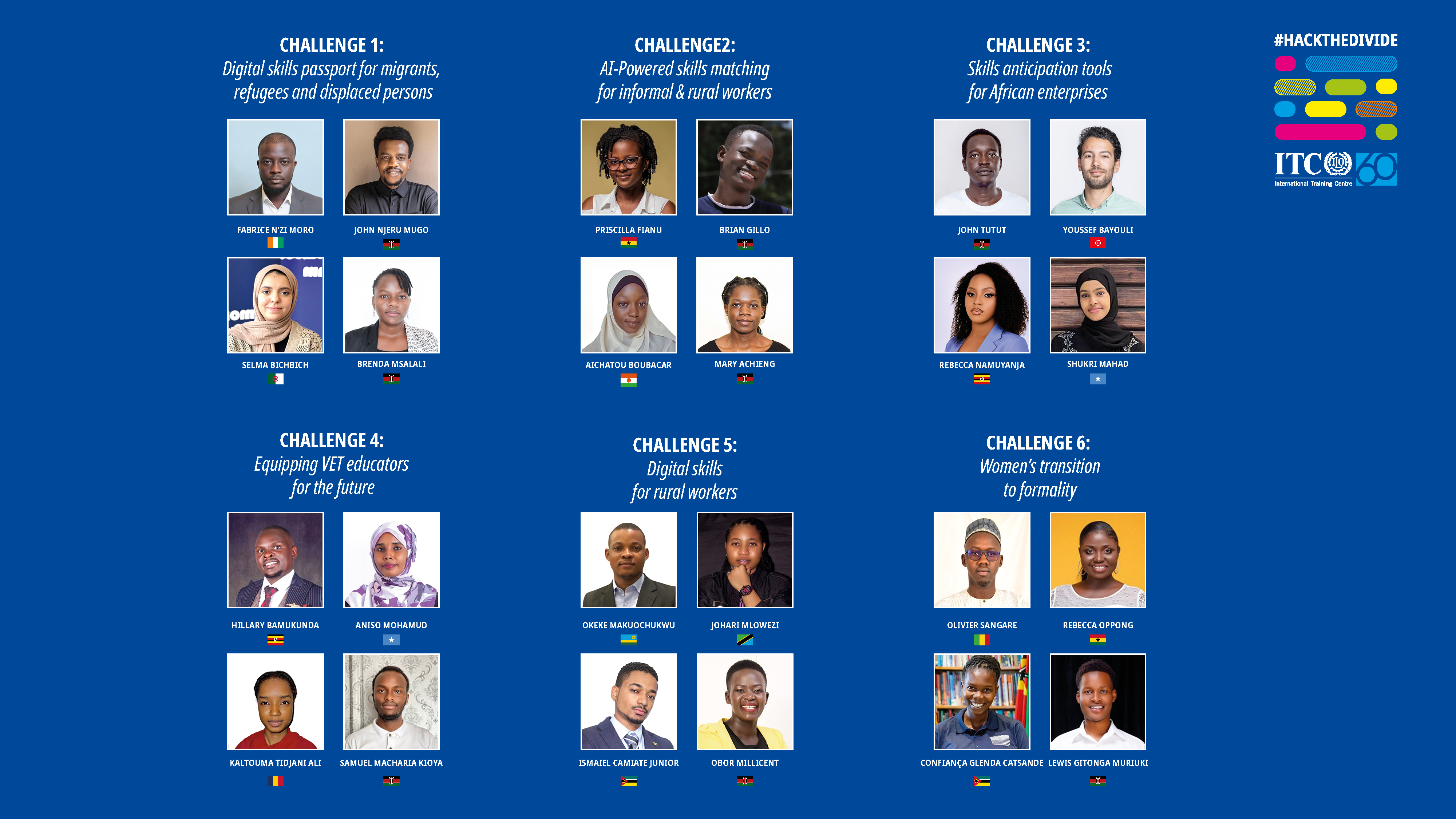
#HackTheDivide’s challenges prioritised areas where digital innovation can make a meaningful contribution to shaping a more inclusive and sustainable world of work in Africa. They were drawn from priorities shared by governments, social partners, training institutions, and local authorities, reflecting key areas where digital innovation can strengthen Africa’s skills and employment landscape.
Here, Samuel Macharia Kioya talked about working on Challenge 4:
My team is exploring how to equip TVET teachers and technical institutions with teacher-ready skills. From emerging trends, we’ve identified three key areas. First, AI e-learning — where learners not only access information but also receive feedback, track their progress, and identify areas for improvement. Second, digital practice — one of the biggest challenges in the technical industry is access to materials and equipment. Today, virtual and augmented reality make it possible for trainees, such as welders, to practice with limited resources. Lastly, the digital portfolio — for too long, years of practice in school have gone unrecognized. With digital portfolios, every task and exercise completed will count toward professional experience, giving graduates a valuable stepping stone into industry.
Samuel Macharia Kioya
Kenyan participant
Participants followed an experiential, sprint-based learning process that combined foresight methodology, design thinking and cross-cultural peer collaboration. They engaged in problem framing and ideation, empathy and stakeholder mapping, elevator pitching and rapid prototyping, moving from understanding complex challenges to developing and testing practical solutions aligned with real-world policy and development needs. The methodology emphasized active, hands-on learning, where young innovators work in teams, receive expert inputs, and engage in continuous feedback cycles.
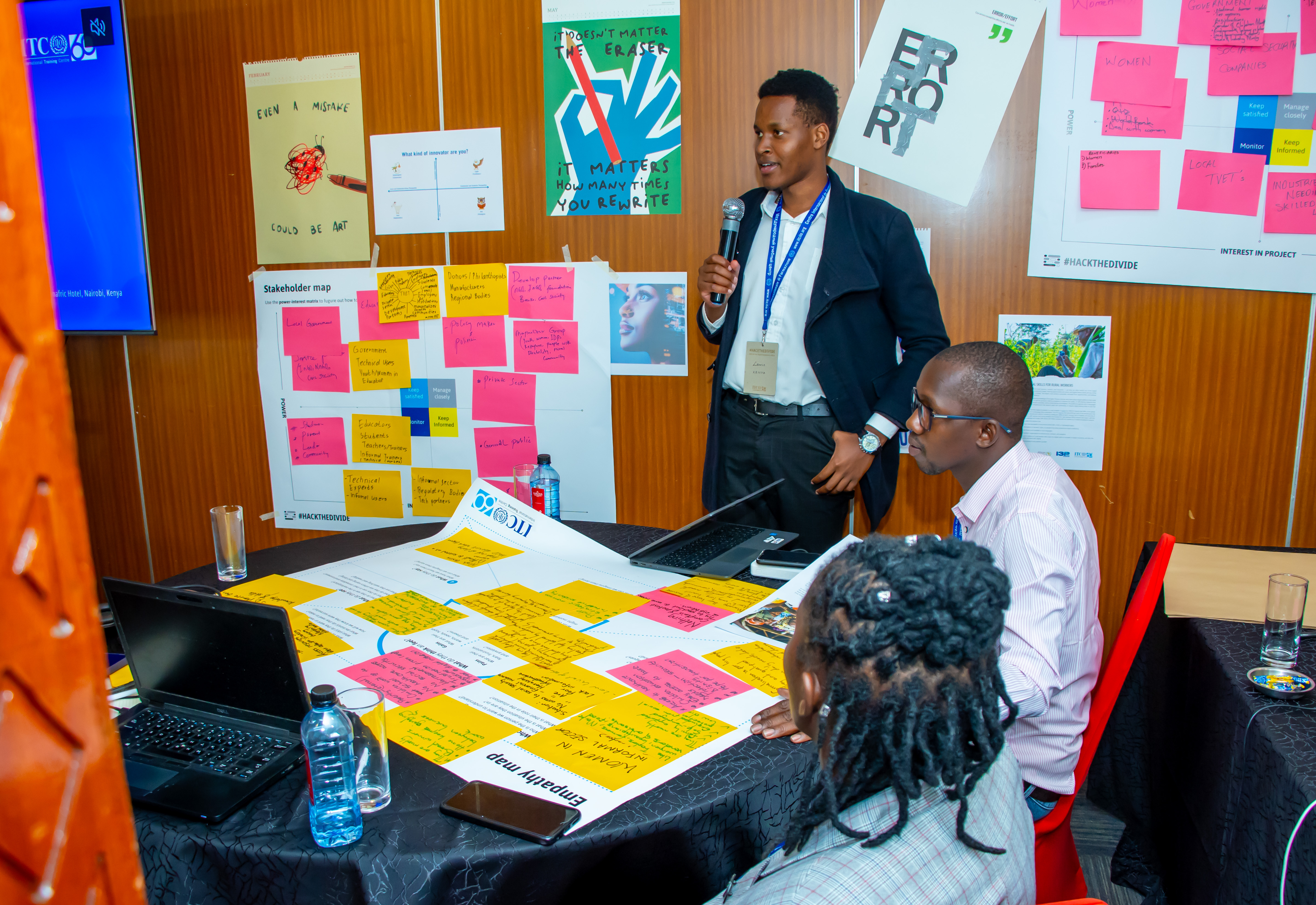
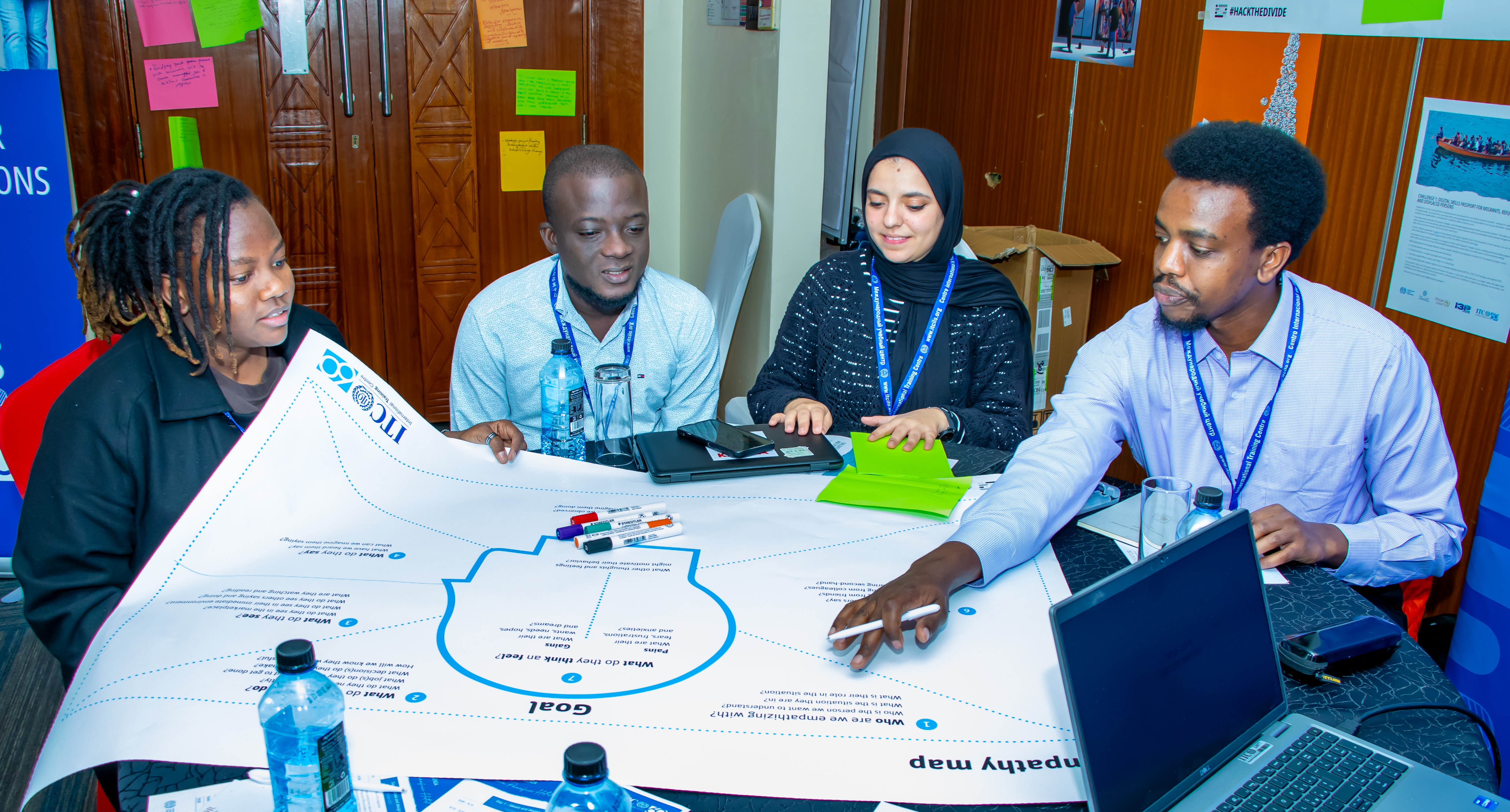
Day 1 was dedicated to discovery and envisioning, guiding participants to frame problems, explore future trends, and generate initial solution concepts. Day 2 focused on building and testing, as teams refined prototypes, practised pitching, and presented their innovations to peers and decision-makers.
From Hack to Impact: Turning Bold Ideas into Real Solutions
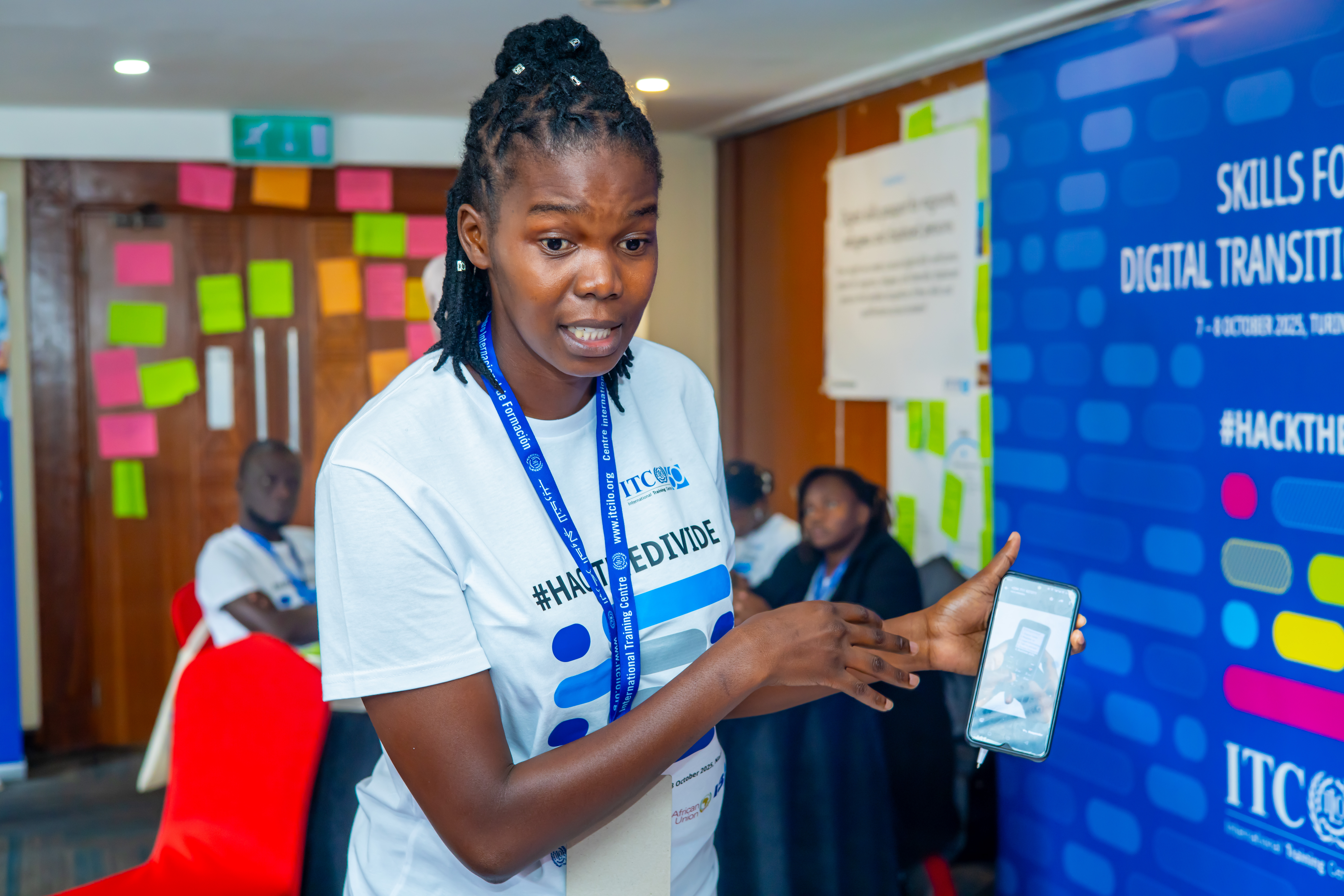
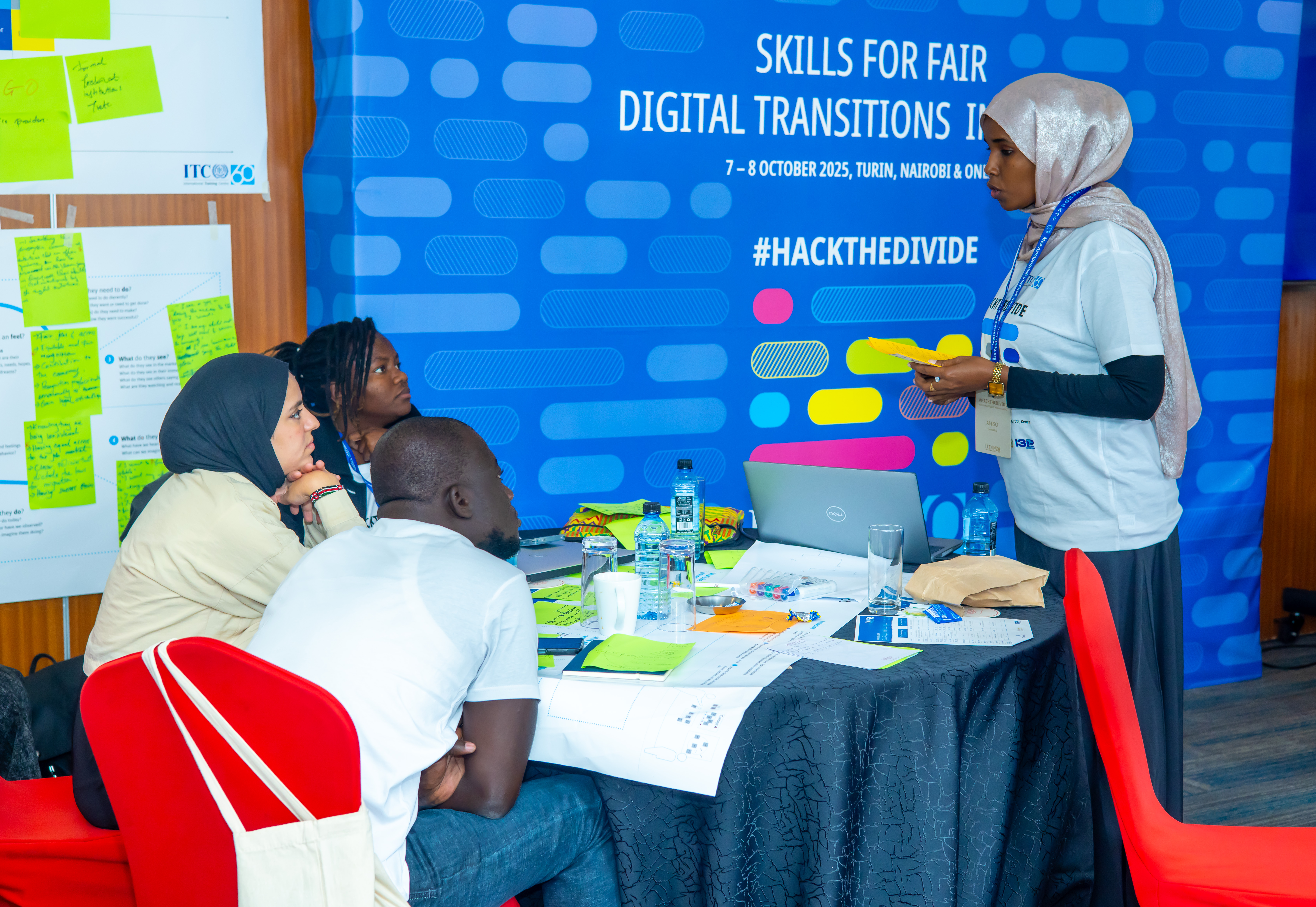
Both events closed with a pitching session. The grand finale brought the energy of the #HackTheDivide Nairobi Hackathon to Turin. Finalists from the hackathon pitched their solutions via livestream before a high-level jury: Mary Kerema (Kenya ICT Ministry), Nancy Chenard (Unicongo), Prof. Trywell Kalusopa (UNZA), Hilma Mote (ILO ACTRAV), Giuseppe Scellato (I3P), and Matteo Bagnato (EdTech Italia).
The audience and the jury selected two outstanding finalists: TVET 360 (Challenge 4) and Linka (Challenge 2).
After a thorough screening process, Linka emerged as the winning team, earning them a fully-funded incubation at I3P in Italy. Their ideas will continue to grow through this incubation opportunity, turning their prototype into impact.
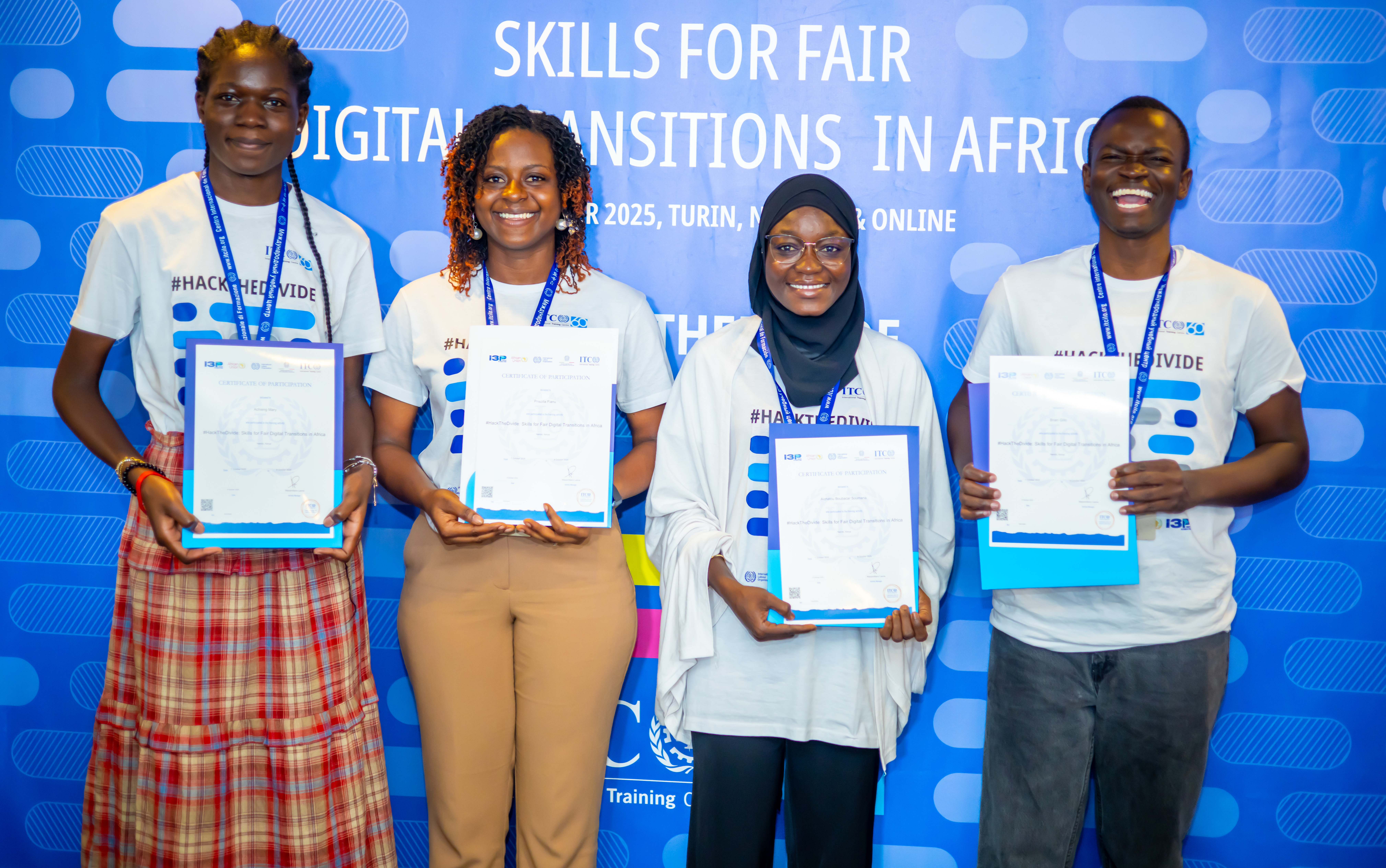
The interaction between both events ensured that ideas and solutions generated are immediately tested against and tailored to the specific skills challenges of African countries, creating a seamless bridge from policy to practice.
By showcasing homegrown innovations, supporting grassroots startups, and empowering youth, Skills for Fair Digital Transitions in Africa equipped participants to build and contribute to a future-ready skills system that enhances access and employability. Without a doubt, Africa’s digital revolution is already underway.
